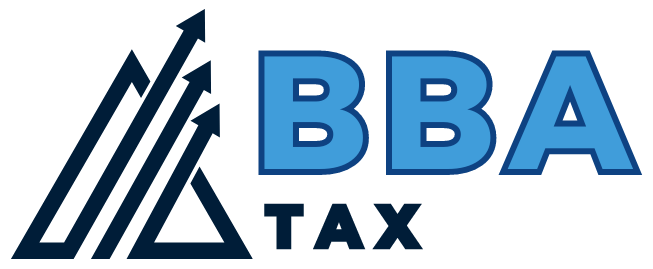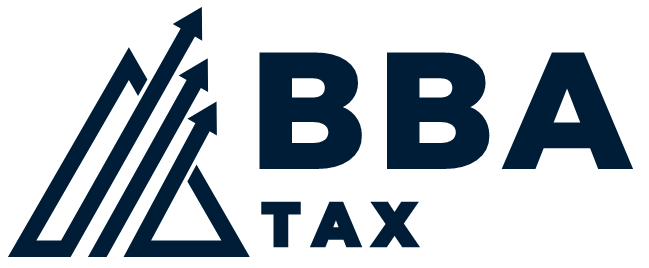Paying taxes is a legal obligation for individuals and businesses in Canada. Failing to pay taxes or file tax returns on time can lead to severe consequences, including financial penalties, interest charges, legal action, and damage to your credit score. For many, understanding these implications is the first step to avoiding costly mistakes.
At BBA Tax, a trusted Ottawa-based accounting firm, we help individuals and businesses navigate their tax obligations seamlessly. Whether you’re self-employed, a corporation, or an individual, this comprehensive guide outlines what happens if you don’t pay your taxes in Canada and how to avoid the potential repercussions.
Table of Contents
- Why Filing and Paying Taxes Is Essential
- Consequences of Not Paying Taxes in Canada
- a. Financial Penalties
- b. Interest Charges
- c. Legal Actions and Garnishments
- d. Seizure of Assets
- e. Damage to Credit Rating
- f. Impact on Future Benefits and Subsidies
- What Happens If You Don’t File Your Tax Return?
- How the CRA Tracks Non-Payment and Non-Filing
- Steps to Take If You Can’t Pay Your Taxes
- How BBA Tax Can Help
- Stay Compliant and Avoid Tax Troubles
1. Why Filing and Paying Taxes Is Essential
Taxes fund critical services such as healthcare, education, infrastructure, and public safety. As a Canadian resident or business, fulfilling your tax obligations supports these services and ensures compliance with federal and provincial laws.
Non-payment or non-filing not only disrupts your financial stability but can also lead to long-term legal and economic consequences.
2. Consequences of Not Paying Taxes in Canada

Failing to pay taxes can trigger a series of actions by the Canada Revenue Agency (CRA). These consequences can escalate over time if the debt remains unpaid.
a. Financial Penalties
The CRA imposes penalties for late payment and non-payment of taxes:
- Late Filing Penalty: 5% of the owed amount, plus 1% for each month the return is late (up to 12 months).
- Repeated Late Filing Penalty: If you have been charged a late filing penalty in previous years, the penalty increases to 10%, plus 2% for each month the return is late (up to 20 months).
b. Interest Charges
Interest is applied to any unpaid taxes from the due date until the balance is cleared. The CRA compounds interest daily, and the rates are updated quarterly.
c. Legal Actions and Garnishments
The CRA can take legal action to recover unpaid taxes, including:
- Wage Garnishment: The CRA can garnish your wages or other income sources.
- Third-Party Demand: Banks and financial institutions may be instructed to redirect funds from your accounts to the CRA.
d. Seizure of Assets
In severe cases, the CRA may seize and sell assets, such as property or vehicles, to recover outstanding taxes.
e. Damage to Credit Rating
Unpaid taxes can affect your credit rating, making it harder to secure loans, mortgages, or credit cards.
f. Impact on Future Benefits and Subsidies
Failing to file or pay taxes can result in the suspension or reduction of government benefits, such as:
- Canada Child Benefit (CCB)
- GST/HST credits
- Provincial tax benefits
3. What Happens If You Don’t File Your Tax Return?
Even if you don’t owe taxes, failing to file your tax return can lead to penalties and complications:
- Estimated Assessments: The CRA may estimate your income and assess taxes based on these estimates, which could be higher than your actual tax liability.
- Audit or Investigation: Non-filing raises red flags, increasing the likelihood of a CRA audit.
- Lost Refunds or Credits: You may miss out on refunds or tax credits if you don’t file your return on time.
4. How the CRA Tracks Non-Payment and Non-Filing
The CRA employs various methods to identify non-compliance:
- T-Slips and Reporting: Employers, banks, and investment institutions submit T-slips (e.g., T4, T5) directly to the CRA, allowing them to track your income.
- Information Sharing: The CRA exchanges information with provincial and international tax authorities.
- Audits and Reviews: Random audits or triggered reviews can uncover discrepancies or unpaid taxes.
5. Steps to Take If You Can’t Pay Your Taxes

If you’re unable to pay your taxes, there are options to mitigate the situation:
a. File Your Return Anyway
Always file your tax return on time, even if you can’t pay the full amount. This avoids late filing penalties.
b. Arrange a Payment Plan
Contact the CRA to set up a payment arrangement. The CRA offers flexible options based on your financial situation.
c. Apply for Taxpayer Relief
If you’re facing financial hardship due to circumstances like illness or unemployment, you can apply for taxpayer relief to reduce penalties and interest.
d. Seek Professional Help
Consulting a tax accountant, like those at BBA Tax, can help you navigate CRA processes and minimize the impact of unpaid taxes.
6. How BBA Tax Can Help
At BBA Tax, we specialize in helping individuals and businesses manage their tax obligations effectively. Our services include:
- Tax Preparation and Filing: Avoid penalties and interest with accurate and timely tax returns.
- CRA Negotiations: Assistance with payment plans, taxpayer relief applications, and dispute resolution.
- Audit Support: Professional representation during CRA audits or investigations.
- Financial Planning: Strategies to manage tax debt and improve financial health.
With our expertise, you can address tax challenges confidently and focus on your financial goals.
7. Stay Compliant and Avoid Tax Troubles
Not paying taxes in Canada can lead to financial penalties, legal action, and long-term repercussions. By understanding your tax obligations and seeking professional assistance when needed, you can avoid these issues and maintain financial stability.
At BBA Tax, we’re here to help you navigate the complexities of tax compliance. Contact us today for personalized solutions that meet your needs.



